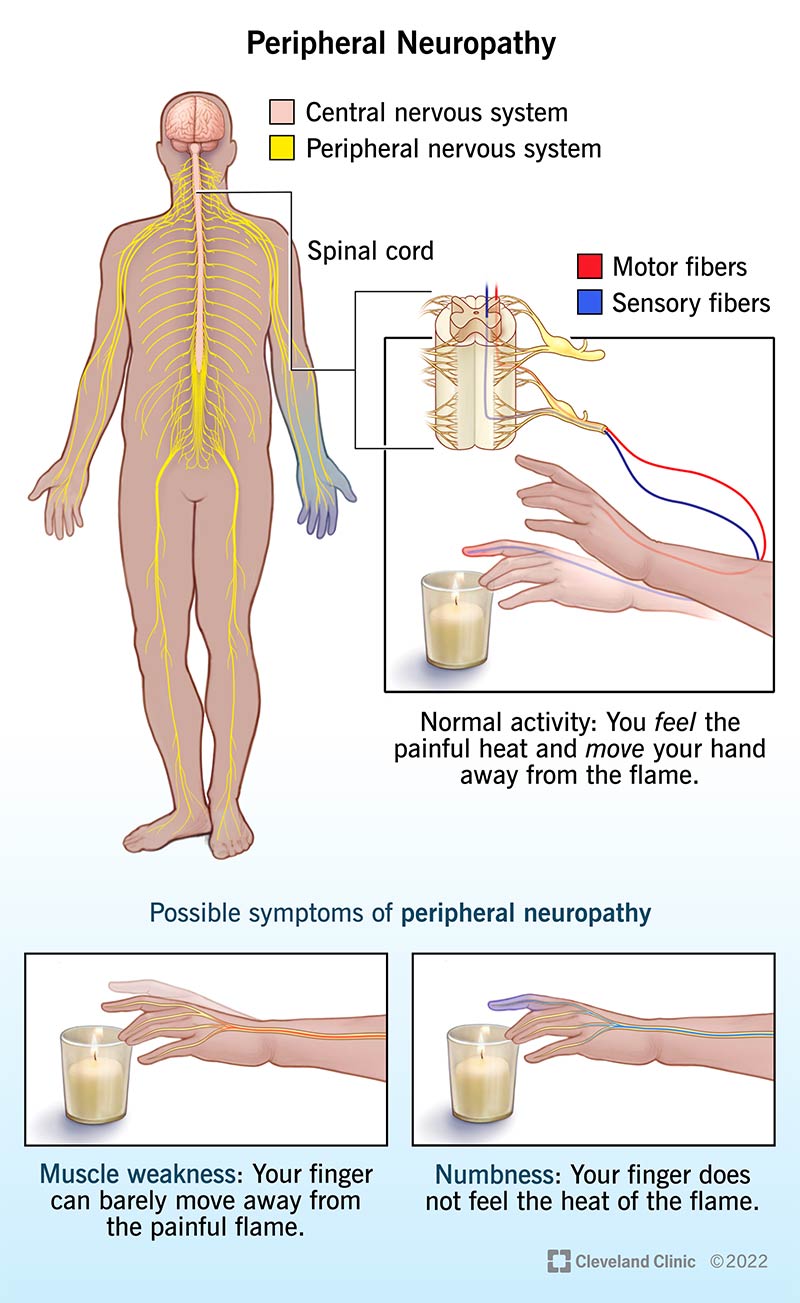Transforming Lives: The Life-Altering Impact of a Neuropathy Doctor
Living with neuropathy can feel like an uphill battle, marked by pain, numbness, and an overwhelming sense of isolation. Many individuals suffering from this condition may feel as though their lives have been turned upside down, struggling to find relief and reconnect with the activities they once loved. The impact of neuropathy extends beyond physical discomfort; it can affect emotional well-being, social interactions, and overall quality of life. However, new promise neuropathy is on the horizon with the compassionate care provided by a specialized neuropathy doctor.

These medical professionals possess the expertise necessary to diagnose and treat the various forms of neuropathy, offering patients not just treatment, but a path toward healing. With a comprehensive approach that includes advanced therapies and personalized care plans, neuropathy doctors can help reclaim lost sensations and restore function. Their commitment to understanding the individual needs of each patient transforms the experience of living with neuropathy, making it possible for many to lead fuller, more vibrant lives.
Understanding Neuropathy
Neuropathy refers to damage or dysfunction of the peripheral nerves, which connect the brain and spinal cord to the rest of the body. This condition can lead to a variety of symptoms, including pain, tingling, numbness, and weakness, often affecting the hands and feet. Many individuals suffering from neuropathy experience difficulties in everyday activities, which can significantly impact their quality of life. Understanding the underlying causes of neuropathy is crucial for effective treatment and management.
There are numerous factors that can contribute to the development of neuropathy, including diabetes, autoimmune diseases, infections, and exposure to toxins. Diabetes is one of the most common causes, often leading to diabetic neuropathy, which results from prolonged high blood sugar levels that damage nerve fibers. Other medical conditions, such as vitamin deficiencies and certain medications, can also play a role in nerve damage. Identifying the root cause of neuropathy is essential for determining the appropriate treatment strategy.
Diagnosing neuropathy typically involves a comprehensive evaluation, including a detailed medical history and physical examination. Additional tests such as blood work, nerve conduction studies, and electromyography may be necessary to assess nerve function and pinpoint the specific type of neuropathy. Understanding the complexities of neuropathy is the first step toward effective treatment, allowing individuals to regain control over their lives and seek help from specialists, including neuropathy doctors, who can guide them on the path to recovery.
The Role of a Neuropathy Doctor
A neuropathy doctor specializes in diagnosing and treating conditions related to nerve damage and dysfunction. They possess in-depth knowledge of the nervous system and how various disorders can affect overall health. By conducting comprehensive evaluations, including physical examinations, neurological assessments, and diagnostic imaging, they can identify the underlying causes of neuropathy. These causes often range from diabetes and autoimmune diseases to environmental toxins and nutritional deficiencies.
Once a diagnosis is established, a neuropathy doctor develops personalized treatment plans tailored to each patient's needs. They may prescribe medications to manage pain, recommend physical therapy to improve function, or suggest lifestyle changes to promote nerve health. This multidisciplinary approach often involves collaboration with other healthcare professionals, ensuring a comprehensive treatment strategy that addresses not just the symptoms but also the root causes of neuropathy.
Additionally, a neuropathy doctor plays a crucial role in educating patients about their condition. They provide valuable resources and support, empowering individuals to take control of their health. Through counseling, they help patients understand their diagnosis, outline potential treatment options, and set realistic expectations for recovery. This supportive environment fosters resilience and encourages patients to actively participate in their healing journey, ultimately transforming their lives for the better.
Success Stories and Transformations
Many patients have experienced remarkable changes in their lives after seeking the help of a neuropathy doctor. For instance, Jane, a 54-year-old woman who had been living with severe leg pain for years, found little relief from traditional medications. After consulting with a specialist, she learned about targeted therapies and lifestyle changes that addressed her specific neuropathy condition. Within months, Jane was not only pain-free but also able to return to her favorite activities, such as hiking and gardening, which she thought were forever out of reach.
Another inspiring story is that of Mark, a 42-year-old man whose work life had been devastated by nerve damage. The constant tingling and numbness in his hands made it nearly impossible to perform his job as a technician. After working closely with a neuropathy doctor, Mark underwent a personalized treatment plan that included physical therapy and dietary adjustments. The transformation was incredible; he regained strength in his hands and returned to work, gaining a new lease on both his professional and personal life.
Then there's the story of Linda, a mother of three who struggled with diabetic neuropathy. The burning sensation in her feet often left her exhausted and frustrated. With the guidance of her neuropathy doctor, she learned about the importance of blood sugar management and its impact on nerve health. By implementing the recommended changes and following a new treatment regimen, Linda saw significant improvement. Her newfound energy allowed her to engage more with her children, reclaiming joyful moments that she thought she had lost forever.